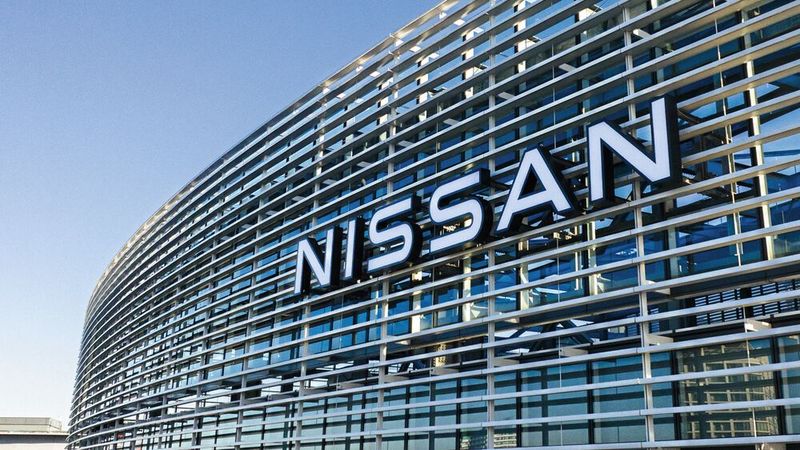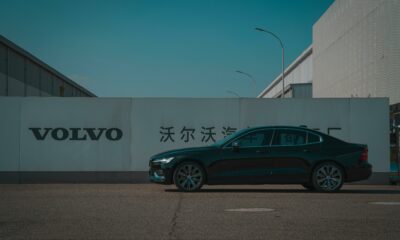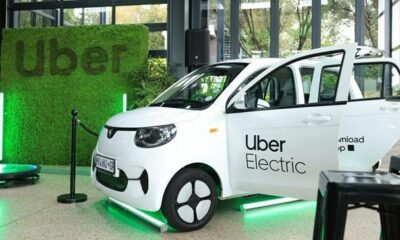News
Nissan to Shut Down Historic Oppama Plant as Losses Mount and Turnaround Plan Stalls

After 66 years of production, the birthplace of the LEAF prepares to switch off the lights.
Nissan’s once-pioneering Oppama plant near Yokohama, Japan the birthplace of the world’s first mass-market electric vehicle, the Nissan LEAF, will grind to a halt by the end of its 2027 fiscal year. The decision marks a major blow to Japan’s automotive legacy and underscores the deep financial trouble facing the former global car giant.
A Costly Reboot for a Struggling Titan
The move forms part of a broader turnaround plan that aims to consolidate Nissan’s global production footprint. The company announced in May that it would shrink its global plant count from 17 to just 10 by 2027.
But this is more than just streamlining. Nissan’s losses have been piling up, a staggering 671 billion yen ($4.5 billion) last year alone. This, on top of a 15% reduction in its global workforce, signals a company still reeling from years of missteps, scandal, and tough global competition.
Why Oppama?
The Oppama plant, operational since 1961 and employing around 3,900 people as of late 2024, holds a storied place in Japanese manufacturing history. It was where Nissan produced the groundbreaking LEAF, the car that once made headlines as the first electric vehicle to hit mass markets globally.
But heritage doesn’t pay the bills. Nissan will now shift production to Kyushu, a southern Japanese island where the automaker already operates another factory. The company says this transition will help improve efficiency, but it’s cold comfort to thousands facing job uncertainty.
Rivals Accelerating Ahead
Nissan’s woes come at a time when Chinese EV brands like BYD and XPeng are eating into its market share across Asia and beyond. At the same time, Japan’s homegrown competition isn’t making life easier, especially after a failed merger with Honda collapsed earlier this year. Insiders say talks broke down when Honda proposed turning Nissan into a subsidiary, a move the fiercely independent company resisted.
Now, some are eyeing Foxconn, the Taiwanese iPhone-assembler-turned-EV-manufacturer, as a potential partner. The tech giant has expressed interest in buying Renault’s stake in Nissan, a deal that could inject much-needed capital and innovation into the struggling brand.
Tariffs, Turmoil, and an Uncertain Future
Nissan’s position is further complicated by geopolitical headwinds. US President Donald Trump’s 25% import tariff on Japanese cars is particularly damaging for Nissan, which caters to more price-sensitive buyers in the US market than Toyota or Honda. And earlier this year, Nissan shelved plans for a $1-billion battery plant, citing a “challenging business environment”.
With ratings agencies like Moody’s downgrading Nissan to junk, citing an ageing model portfolio and razor-thin margins, the road ahead looks bumpy.
Oppama’s Legacy Fades, but the Story Isn’t Over
As Nissan winds down one of its most historic production sites, questions linger about whether the company can truly reinvent itself. For Japan, it’s yet another reminder that innovation without follow-through can leave even the most storied brands in the dust.
Oppama was more than just a factory. It was a symbol of Japan’s technological ambition now, it’s a casualty of a global industry shifting at breakneck speed.
The lights may soon go out at Oppama, but Nissan’s survival depends on whether it can spark a new beginning and fast.
{Source: IOL}
Follow Joburg ETC on Facebook, Twitter , TikTok and Instagram
For more News in Johannesburg, visit joburgetc.com



























